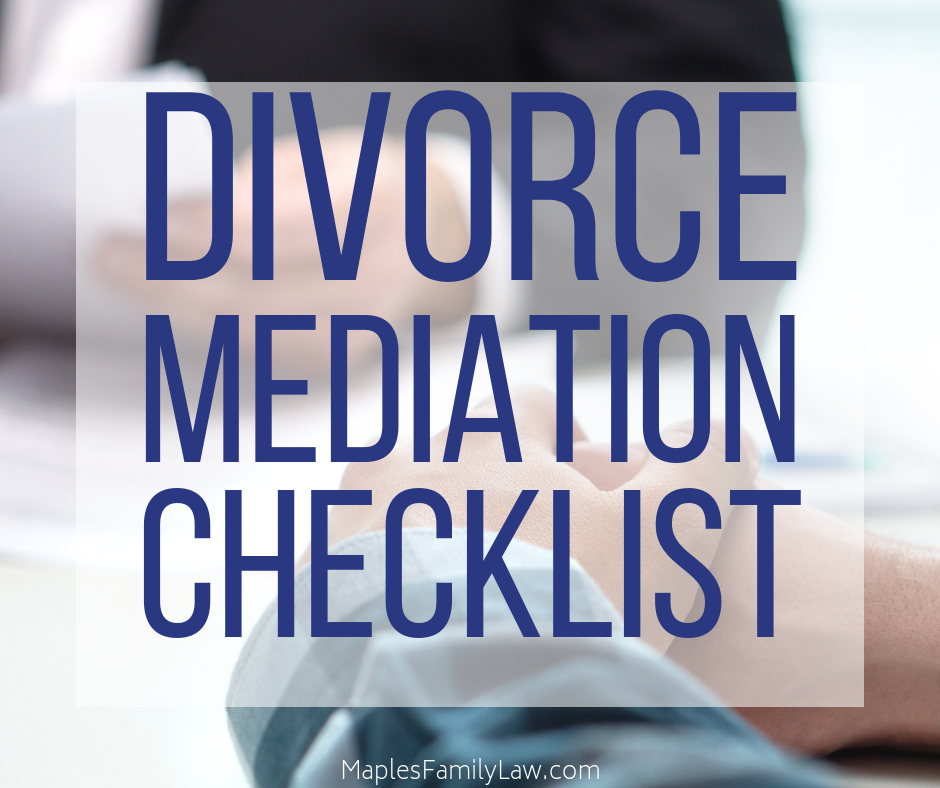 Divorce
Divorce
17 Divorce Mediation Tips You Need to Know Before…
If you’re divorcing your spouse in California, you’ll likely consider mediation – many people do. In fact, mediation is the smart choice when you and your soon-to-be ex-spouse just can’t see eye-to-eye. And in some cases, the courts actually order mediation to help people resolve disagreements (particularly when it comes to parenting plans for their children). Check out these 17 divorce mediation tips if you’re headed that way – you’ll find them tremendously helpful.
Related: Divorce mediation checklist
17 Divorce Mediation Tips You Need to Know Before You Start Mediation
Some of these tips may not apply to you – but read through each to determine which ones you can put into practice to make your entire experience with mediation go more smoothly.
1. Agree to come to the table in good faith. Mediation requires both you and your ex to decide that you’ll both do your best to find common ground – even if you don’t feel like getting along.
2. Do your homework, and ask your ex to do the same. Create a master list of all your assets and debts, and pull together records for all your income sources (both yours and your spouse’s).
 3. Be realistic. Mediation is about finding common ground, not about bending your ex to your will (or about your ex bending you to his or her will), so don’t walk into it thinking that you’re going to “take it all.” Instead, expect to walk away reasonably satisfied with the outcome. That’s what mediation is designed for, so go into it with the right expectations.
3. Be realistic. Mediation is about finding common ground, not about bending your ex to your will (or about your ex bending you to his or her will), so don’t walk into it thinking that you’re going to “take it all.” Instead, expect to walk away reasonably satisfied with the outcome. That’s what mediation is designed for, so go into it with the right expectations.
4. Don’t be shy, but avoid making demands. Be prepared to say what you want from the divorce and back up your reasoning with facts. The mediator can help you and your ex come together based on facts when you can’t see eye-to-eye emotionally. (This is a key divorce mediation tip that many people miss. It’s really important, because you have to speak up for what you want!)
5. Put your kids first. Remember that although children are resilient, divorce is tough on them – and the things you ask for in mediation should be in their best interest.
 6. Be comfortable with making your own decisions. Your mediator won’t tell you what to do; instead, he or she will present you with options after identifying and discussing issues.
6. Be comfortable with making your own decisions. Your mediator won’t tell you what to do; instead, he or she will present you with options after identifying and discussing issues.
7. Participate actively in the process. If you don’t actively participate, or worse, if you don’t cooperate, mediation won’t be successful. You’ll both have to put in some work and participate in give-and-take.
8. Stay flexible. Mediation is all about compromise, so skip the “my way or the highway” mentality and be ready to give up some things to gain others. If you can only implement a few of these divorce mediation tips, make sure this one is high on your priority list.
9. Know what you’re willing to give up before you begin. There are some things you’d like to get out of your divorce, but there are others that you could do without. Know what you want (and what you can give up) before you start mediation
 10. Know your best alternatives. When you think about your agreements with your spouse, consider what your best scenario would be if you don’t get exactly what you want – and be ready to accept them if they’re presented. This requires pre-planning, so make sure you walk into your mediation with an idea of what you’re really willing to accept (and what’s worth fighting for).
10. Know your best alternatives. When you think about your agreements with your spouse, consider what your best scenario would be if you don’t get exactly what you want – and be ready to accept them if they’re presented. This requires pre-planning, so make sure you walk into your mediation with an idea of what you’re really willing to accept (and what’s worth fighting for).
11. Decide whether you’re bringing your attorney or flying solo. Your attorney can come with you if you wish, but that’s something you should discuss prior to your appointment; in some cases, it’s best if you go alone.
12. Don’t try to mediate if your spouse is abusive. If your spouse has been physically or verbally abusive, mediation may not be the best choice for you. Talk to your attorney about other options. Rather than divorce mediation tips, you likely need an alternative method.
 13. Be honest. You have to be willing to come clean about what you have and what you want – otherwise, your mediation might be doomed from the start. You certainly can’t hide assets; doing so will get you into serious trouble in court.
13. Be honest. You have to be willing to come clean about what you have and what you want – otherwise, your mediation might be doomed from the start. You certainly can’t hide assets; doing so will get you into serious trouble in court.
14. Know that it’s okay to take a break. Mediation isn’t the most fun you’re going to have. In fact, it can be fairly difficult and even frustrating. It’s okay to tell the mediator you need to step outside to clear your head if things are getting too tough.
15. Know what your spouse is angling for. You know your spouse better than anyone else does, so when you go into mediation, you probably have a good idea about what he or she wants. It’s in your best interest to sit down and seriously think about what your spouse would like to get from mediation; that way, you can negotiate better.
16. Check your emotions at the door. It’s hard, but you have to look at mediation like a business negotiation – otherwise, you might not get very far.
17. Keep an open mind. You may really want to get your marital home in the divorce – but would you be okay if you didn’t get it? Be prepared to explore alternative solutions to get what you want (or to come close to getting what you want).
Do You Need to Talk to a Lawyer About Divorce and Mediation Tips?
If you’re contemplating divorce, or if your spouse has already filed, we can help you (and we can give you more divorce mediation tips if you need them). Call us right away at (209) 546-6870 or get in touch with us online to schedule a consultation.
















